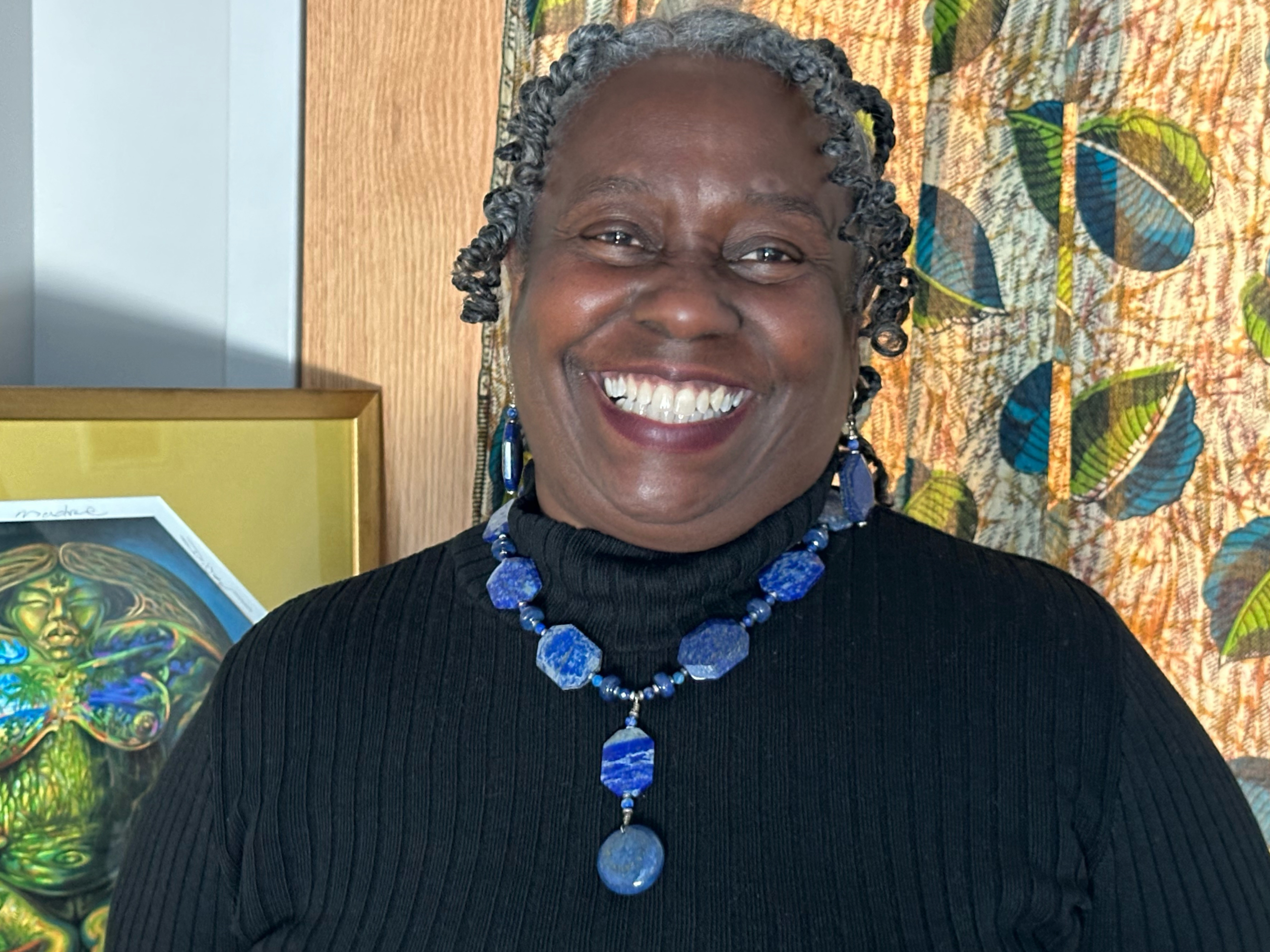photo by Lara Herscovitch
As I shared in my Spring 2020 poem and post, “Ode to Breathe,” I have cared deeply about public health and women’s health my entire adult life.
I have always written reflectively as well, starting with a diary at ten! Writing about love, loss, and feelings at an early age, I still have some of those journals and notebooks.
Throughout the COVID-19 lockdown, I continued working and teaching in public health. I continued writing poetry, and I wanted to offer space for others to write.
With Black students asking, “Why do people hate us?” I was committed to creating sacred space for myself and Black sisters to process the layers of trauma from hatred and violence against our Black bodies.
I worked with a fellow SCSU faculty member and public health colleague to center the experiences and wisdom of scholars who are female, Black, Indigenous, and People of Color (BIPOC). We wanted to center the voices of BIPOC women in academia – faculty, administrators and students alike.
With too many tables missing seats for us, we decided to build and bring our own table and seats. We invited many under-represented scholars to bring their experiences, authenticity and insights about the COVID-19 years. It was a humbling, yet uplifting privilege to be allowed to first read and then edit and comment on unique windows of perception and life of others.
Together, we reflected and discussed the many ways we have been navigating the overlapping crises of political turmoil, social unrest and public health emergencies, including COVID-19. We shared the ways we struggle and grapple with discrimination, emotional tolls, visible and invisible burdens.
It is both saddening and inspiring to witness and explore these stories of ordeal and loss – alongside our hope, triumphs and successful strategies for mitigating gender inequities.
In the hope that it will also inspire others in the work and the academy, we published the stories both as a hard copy book and an e-book. It focuses on first recognizing inequity, then on building resilience, and finally, on solutions and strategies for success.
Some of the challenges during COVID that we reflected on include: social unrest, police brutality, medical racism in Native American communities, bereavement with the loss of rituals, motherhood, working around the clock, social-emotional challenges in K-12 education, celebrating Ramadan.
Our scholars reflected about never giving up and finding a way through, maintaining perspective while navigating realities, growing from challenges, continuing personal and professional development, sharing resources for coping with loss and other challenges, teaching, mentoring students of color, creating spaces to heal, and lessons from bell hooks, among other healing and resilience-building strategies.
The focus of my own chapter is the CDC’s Adverse Childhood Experiences (ACEs) assessment tool.
I remember the first time I took the 10-question quiz. I was immediately astounded and overcome with the enormity of Black trauma contained in the tool’s ten questions. I saw my own story in it, and the story of so many other Black women, families and students. I also witnessed how our trauma backgrounds were magnified by the impact of three pandemics: COVID-19, economic inequities, and systemic racism.
The definition of trauma I use is “emotional responses to disastrous life events.” Like COVID-19, trauma can have both short- and long-term health consequences. In this moment when some seem to be healing and living with COVID-19 as if it is “just” a new type of seasonal flu, for many others it is not that simple. In many ways, it exacerbated inequities through health and financial tolls, mental and emotional fatigue, and workplace disruption.
In my own family, the impact of COVID-19 as Black trauma will reverberate for years to come. We lost my oldest sister; I am grieving the unexpected loss along with her three out of four surviving adult children. We also lost my oldest niece. I adopted her cat; the loss hits in waves over life’s simple things like taking my cat to the vet – stirring up the large black hole that I fight not to fall into at times.
The reverberations are still unfolding; but a new sense of gratitude for life continues. Love, family, life, faith, pauses, therapy all help and have their place as strategies for grief, bereavement, and trauma.
We can – and must – recognize our own and others’ trauma in order to address it. Trauma-informed practices work, tailored to specific developmental ages and stages, individuals and families. Whether Cognitive Behavioral Therapy, Attachment and Biobehavioral Catch-up, Trauma Assessment Pathway or many more…
Meaningful practices like these successfully counteract and help undo the damaging effects of trauma on our lives – whether from COVID-19, economic inequities, systemic racism, or another source.
We BIPOC women faculty, administrators and students are breaking barriers, maintaining excellence, becoming award-winning scholars, and flourishing as experts in our fields. We turn the tide by making collaborative spaces for BIPOC women to reassure, uplift, mentor and invite each other to express feelings of vulnerability, unease, and, ultimately, hope and triumph.
Learn more about Marian via the book profile, SCSU, or LinkedIn; learn more about ACES and the 10-question quiz at this link
To reach Marian directly: evansm7@southernct.edu

